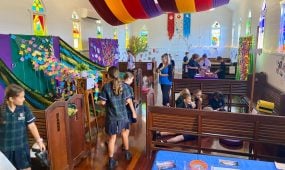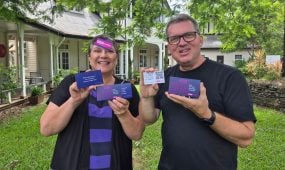Weddings, parties, Advent, anything
Features
“I’m sure my friends on the Thai-Myanmar border didn’t think much of it when they welcomed me into their workplace, their parties and their homes. But all those cups of instant coffee over conversation made a deep impression on me – a kind of justice communion for my soul each week,” says the Justice Unit’s Peter Branjerdporn
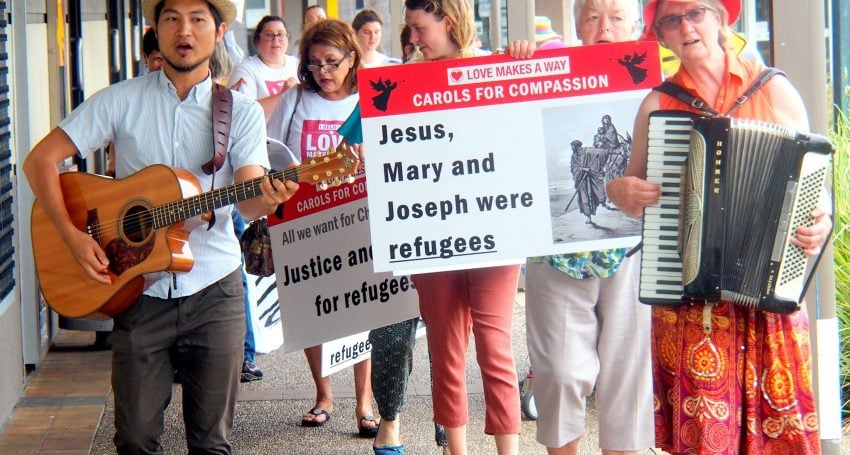
What does it mean to be “welcoming”? Throwing big parties with bottles of Moët? Building a beautiful al fresco dining area for entertain guests? When we say, “All are welcome to worship with us” on Sunday mornings, what do we really mean?
I met the most welcoming people when my family and I were living on the Thailand-Myanmar border in 2012. I was working as a pharmacist at Mae Tao Clinic in Mae Sot, a town on the Thai-Myanmar border six and a half hours northwest of Bangkok, on an AusAID-funded Australian Volunteers for International Development assignment. A handful of small old buildings make up this health and community centre that receives over 150,000 patient visits annually. Most of these patients are people seeking asylum from the world’s longest ethnic civil war.
As part of the central pharmacy team, I worked with a resilient group of people who themselves are displaced persons from Myanmar. I ran basic pharmacology workshops for pharmacy staff and medics, and also gave advice on ordering, inventory management and improving operational procedures and policies.
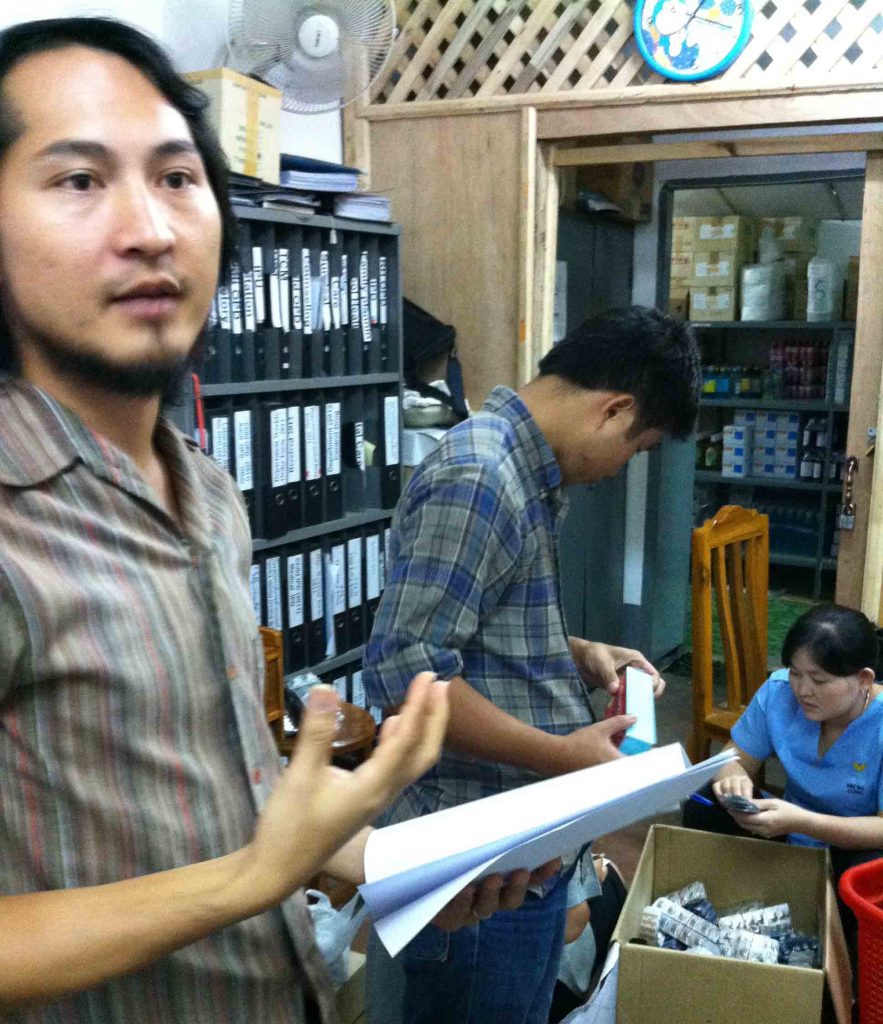
“I met the most welcoming people when my family and I were living on the Thailand-Myanmar border in 2012. I was working as a pharmacist at Mae Tao Clinic in Mae Sot, a town on the Thai-Myanmar border six and a half hours northwest of Bangkok, on an AusAID-funded Australian Volunteers for International Development assignment” (Peter Branjerdporn volunteering on the Thailand-Myanmar border in 2012)
I must admit to being very nervous in the beginning. I grew up in Bangkok but I had never even been to that part of Thailand before. It took me a few weeks to have an actual conversation (in English) with anyone, but eventually I started to make some good friends.
I quickly discovered that my new friends had left their homelands for a range of reasons, with some seeking asylum and others seeking quality healthcare, education and a better life for their children. Around town there was evidence of inhumane sweat shops, unfair wages and human trafficking, as well as people living with disabilities and unaccompanied children begging along the main streets.
Advertisement
And yet, each week I experienced the kind of welcome I’d never experienced before. First of all they welcomed me into their midst without judgement. It must have been a surprise to see me, a young Thai-looking pharmacist turn up, after they were told that an Australian pharmacist-trainer was going to come and work with them.
But that was just the beginning. As the weeks turned into months, I continued to experience more and more of that welcome, as they showed a willingness to let me be who I was. They helped me understand their culture while also being willing to learn about mine. They valued my ideas even though, especially in the beginning, they were irrelevant and unrealistic. They spent time with me. It seemed like they were never in a rush to move on to the next task or conversation. This made me feel really valued and appreciated.
They also shared their life stories with me. These stories changed me forever.
They listened to my stories, which made me feel accepted. Our family was invited to a wedding and then to a child’s birthday party.
I loved the chance to experience their culture, and the way they celebrated life with each other and welcomed strangers like me even though they did not have much. A colleague invited me to their very humble home to have a simple meal made with love. I can still taste the delicious stir fry and hear the laughter we had.
Advertisement
In Matthew 25 Jesus told his followers that whenever they feed a hungry person, give a thirsty person a drink, take in a stranger, give someone clothes to wear, or visit someone who is sick or in prison, they were really doing it for Him. I feel like I was that stranger in 2012. And the Kingdom of God belongs to my friends who had so little and yet welcomed me with open arms.
Advent is about preparing for Jesus’ birth. We welcome Him into our hearts by welcoming ‘strangers’ (people we don’t know…yet!) into our community. The welcome statements at our churches are a great start, but often it is in other not-so-visible ways that we can really welcome people.
The welcome shown to Mary and Joseph, and then to Jesus, by the innkeeper wasn’t anything particularly amazing at the time, but look what baby Jesus went on to become! Next time we think we don’t have enough money to give, no space to house someone, or skills to share to change someone’s life, just think: a dirty, smelly stable changed the Holy Family’s life and the future of humanity forever!
Related Story
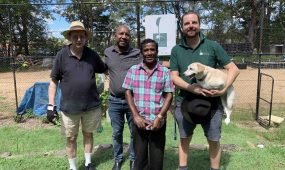 Features
Features
Baroona Farm partners with Multicultural Australia
I’m sure my friends on the Thai-Myanmar border didn’t think much of it when they welcomed me into their workplace, their parties and their homes. But all those cups of instant coffee over conversation made a deep impression on me – a kind of justice communion for my soul each week. I am truly indebted to their love and I think that’s why I am still passionate about supporting people seeking asylum to find safety, freedom and dignity nearly 10 years later.
Here are some suggested ways for us to be a more welcoming people:
- Make a point of speaking to three people you haven’t met before at Church this Christmas.
- Invite people who would have spent Christmas alone to join your family on Christmas Day.
- Learn about and support the work of organisations working with people seeking asylum such as Baroona Farm, which is based at St Francis College and works alongside the Romero Centre. To find out how you can support Baroona Farm, please contact The Rev’d Samuel Dow at Baroona Farm via baroonafarm@gmail.com.



